Physical Activity Researcher
Hello and Welcome to Physical Activity Researcher Podcast! Physical Activity Researcher Podcast is the source of the latest research findings on all things related to physical activity, exercise, and health. World-renowned scientists and experts as guests in an informal and relaxed interview style format. New episodes on Tuesdays, Fridays, and Sundays. The podcast is for anyone who likes to learn scientific and evidence-based knowledge of physical activity, exercise, and health. Our listeners range from researchers to health and fitness professionals, and from inactive office workers to marathon runners. Podcast has several series and hosts each concentrating on different aspects of physical activity: Physical Activity Researcher Series The latest research findings in exercise physiology, biomechanics, physical education, coaching sciences, sport psychology, epidemiology, and public health. These episodes are hosted by researcher and entrepreneur Dr Olli Tikkanen. Meaningful Sport Series Meaningful Sport is dedicated to the exploration of meaning and meaningful experiences in sport and physical activity. Many studies have revealed instrumental benefits of physical activity, but is there something more to it, and how does it contribute to meaningful lives? This series is led by Associate Professor Noora Ronkainen. The series provides inspiration for exploring the meaning and value in sport and physical activity for everyone. Practitioner’s Viewpoint Series Practitioner’s Viewpoint Series has health and fitness professionals as guests. How they see sedentary behaviour and physical activity in their work? What are the best practices to promote physical activity? This series is for you if you are a Personal Trainer, Physiotherapist, Medical Doctor, Health Coach, or anyone working as a health and fitness professional. This series is lead by physiotherapist MSc Liis Kukkonen. Publishing schedule: Tuesdays: Physical Activity Researcher Series Friday: Meaningful Sport Series Sundays: Practitioner’s Viewpoint Series. + Bonus episodes and republications of past highlight episodes We hope you find value in the podcast! -Podcasting team-
Episodes
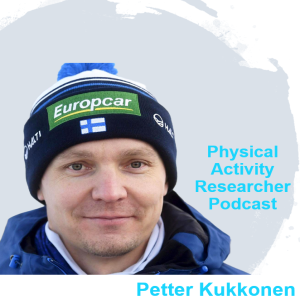
Sunday Dec 05, 2021
Sunday Dec 05, 2021
Petter Kukkonen is a Finnish combined skier who has finished his career and is the current head coach of the Finnish combined team. He represented in his career Lieksa Ski Club. Kukkonen competed in his career in four World Cup competitions in 2000 . The best ranking was 47. In the World Youth Championships, Kukkonen won gold in sprinting and team competition.
Kukkonen started his coaching career at Vuokatti Sports College in 2005 . He coached the Estonian combined and hill jumping national teams for five years until he was appointed to the Finnish combined national team as head coach in April 2012 . Currently, he is the Head Coach of Finnish Nordic Combined Team.
_____________________
This podcast episode is sponsored by Fibion Inc. | The New Gold Standard for Sedentary Behaviour and Physical Activity Monitoring
Learn more about Fibion: fibion.com/research
---
Collect, store and manage SB and PA data easily and remotely -
Discover new Fibion SENS Motion: https://sens.fibion.com/
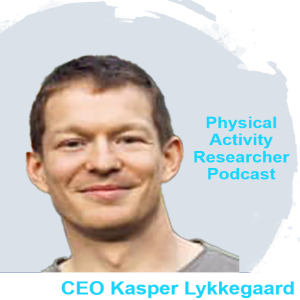
Saturday Dec 04, 2021
Saturday Dec 04, 2021
Kasper Lykkegaard is co-founder and CEO of the company SENS INNOVATION ApS specialised in developing small, low power and flexible sensing devices for medical purposes.
---
This podcast episode is sponsored by Fibion Inc. | The New Gold Standard for Sedentary Behaviour and Physical Activity Monitoring
Learn more about Fibion: fibion.com/research
---
Collect, store and manage SB and PA data easily and remotely -
Discover new Fibion SENS Motion: https://sens.fibion.com/
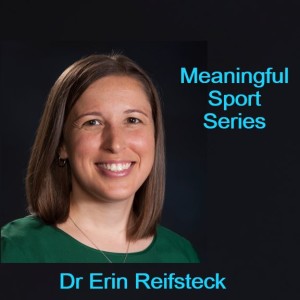
Friday Dec 03, 2021
Friday Dec 03, 2021
Are former athletes any more physically active than people who never took part in competitive sport? Or is this even an important question to ask? In this second part of our conversation with Dr Erin Reifsteck, we explore the challenges and opportunities that athletes encounter when they leave the structured, competitive sport. Does the meaning of sport change in their lives? The main focus is on the intervention that she has developed with her colleagues to support athletes in transitioning to a physically active lifestyle.
Dr Erin Reifsteck is an Assistant Professor at the Department of Kinesiology at the University of North Carolina at Greensboro. Her research has made a substantial contribution to understanding and supporting athletes’ transition to physically active lifestyles.
The research discussed in the episode includes:
“Athletes” and “exercisers”: Understanding identity, motivation, and physical activity participation in former college athletes.
Journey From Control to Liberation: Exploring Student-Athletes' Physical Activity Perceptions and Experiences in the Transition Out of Collegiate Sport
"Moving On!" - Transition program for student-athletes moving to a physically active lifestyle can be found here: https://athletesmovingon.org/
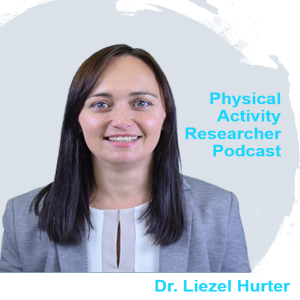
Tuesday Nov 30, 2021
How to Collect Sedentary Behaviour Data with Children? Dr Liezel Hurter (Pt2)
Tuesday Nov 30, 2021
Tuesday Nov 30, 2021
Liezel Hurter currently works at the School of Sport and Exercise Sciences, Liverpool John Moores University. Liezel does research in children's sedentary behaviour measurement and mental health and wellbeing
___________________
This podcast episode is sponsored by Fibion Inc. | Better Sleep, Sedentary Behaviour and Physical Activity Research with Less Hassle
---
Collect, store and manage SB and PA data easily and remotely -
Discover ground-breaking Fibion SENS
---
SB and PA measurements, analysis, and feedback made easy.
Learn more about Fibion Research
---
Learn more about Fibion Sleep and Fibion Circadian Rhythm Solutions.
---
Fibion Kids - Activity tracking designed for children.
---
Collect self-report physical activity data easily and cost-effectively with Mimove.
---
Explore our Wearables, Experience sampling method (ESM), Sleep, Heart rate variability (HRV), Sedentary Behavior and Physical Activity article collections for insights on related articles.
---
Refer to our article "Physical Activity and Sedentary Behavior Measurements" for an exploration of active and sedentary lifestyle assessment methods.
---
Learn about actigraphy in our guide: Exploring Actigraphy in Scientific Research: A Comprehensive Guide.
---
Gain foundational ESM insights with "Introduction to Experience Sampling Method (ESM)" for a comprehensive overview.
---
Explore accelerometer use in health research with our article "Measuring Physical Activity and Sedentary Behavior with Accelerometers ".
---
For an introduction to the fundamental aspects of HRV, consider revisiting our Ultimate Guide to Heart Rate Variability.
---
Follow the podcast on Twitter https://twitter.com/PA_Researcher
Follow host Dr Olli Tikkanen on Twitter https://twitter.com/ollitikkanen
Follow Fibion on Twitter https://twitter.com/fibion
https://www.youtube.com/@PA_Researcher
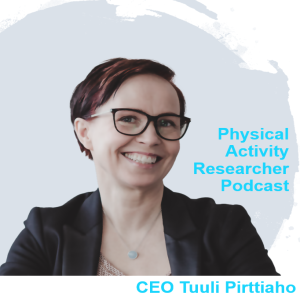
Sunday Nov 28, 2021
Sunday Nov 28, 2021
As a coach Pirttiaho supporting people’s self-intelligence, empowerment, mental fitness and physical recovery and potential, leadership and communication abilities and meaningful being - as a person, entrepreneur or leader.
Pirttiaho is a development and business oriented CPCC, PCC coach with 30 years experience in business and management as well as communication, HR development, service design and coaching. More about my services at www.thewind.fi / www.clues.fi / @thewindconsulting / @thewindcoaching / @cluescoaching
-----------------------------------------
This podcast episode is sponsored by Fibion Inc. | The New Gold Standard for Sedentary Behaviour and Physical Activity Monitoring
Learn more about Fibion: fibion.com/research
---
Collect, store and manage SB and PA data easily and remotely -
Discover new Fibion SENS Motion: https://sens.fibion.com/

Friday Nov 26, 2021
Friday Nov 26, 2021
Athletic retirement is a much-studied topic, but only recently have researchers started to explore whether sport and physical activity remains part of retired athletes' lives. Do athletes still find sport and physical activity meaningful pursuits, and if so, how do they change their practice and relationship with them? What kind of identity changes are required? And importantly, if some athletes require support in the transition in relation to these questions, how can sport psychology practitioners and others around them help them?
Dr Erin Reifsteck is an Assistant Professor at the Department of Kinesiology at the University of North Carolina at Greensboro. Her research has made a substantial contribution to understanding and supporting athletes’ transition to physically active lifestyles.
In this first part of our conversation, we explore the story behind her research and key theoretical constructs that have informed her work. The second part will be focused on the intervention that she has developed with her colleagues to support athletes in transitioning to a physically active lifestyle.
The research discussed in the episode includes:
“Athletes” and “exercisers”: Understanding identity, motivation, and physical activity participation in former college athletes.
Journey From Control to Liberation: Exploring Student-Athletes' Physical Activity Perceptions and Experiences in the Transition Out of Collegiate Sport
"Moving On!" - Transition program for student-athletes moving to a physically active lifestyle can be found here: https://athletesmovingon.org/
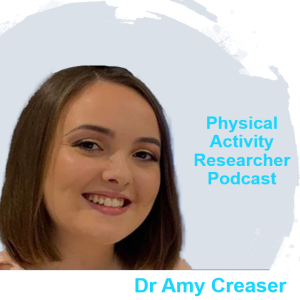
Tuesday Nov 23, 2021
Tuesday Nov 23, 2021
Amy has an undergraduate degree in Psychology from the University of Leeds, who undertook a work placement year at BiB in 2017, working on the ‘Primary School Years’.Amy is currently a PhD Student, working with the JU:MP team and Loughborough University. Her PhD will focus on developing and implementing an intervention to increase physical activity in children and adolescents, using wearable activity trackers (such as Fitbits). Her PhD will take a mixed-methods approach (qualitative and quantitative methods) to investigate intervention impact and assess feasibility and acceptability of the intervention within the community.
_____________________
This podcast episode is sponsored by Fibion Inc. | The New Gold Standard for Sedentary Behaviour and Physical Activity Monitoring
Learn more about Fibion: fibion.com/research
---
Collect, store and manage SB and PA data easily and remotely -
Discover new Fibion SENS Motion: https://sens.fibion.com/
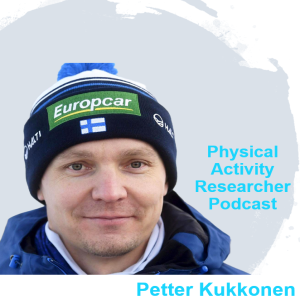
Sunday Nov 21, 2021
Sunday Nov 21, 2021
Day-to-day Work of Olympic Coach
Petter Kukkonen is a Finnish combined skier who has finished his career and is the current head coach of the Finnish combined team. He represented in his career Lieksa Ski Club. Kukkonen competed in his career in four World Cup competitions in 2000 . The best ranking was 47. In the World Youth Championships, Kukkonen won gold in sprinting and team competition.
Kukkonen started his coaching career at Vuokatti Sports College in 2005 . He coached the Estonian combined and hill jumping national teams for five years until he was appointed to the Finnish combined national team as head coach in April 2012 . Currently, he is the Head Coach of Finnish Nordic Combined Team.
_____________________
This podcast episode is sponsored by Fibion Inc. | The New Gold Standard for Sedentary Behaviour and Physical Activity Monitoring
Learn more about Fibion: fibion.com/research
---
Collect, store and manage SB and PA data easily and remotely -
Discover new Fibion SENS Motion: https://sens.fibion.com/
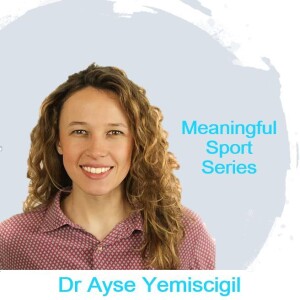
Friday Nov 19, 2021
Friday Nov 19, 2021
In this second part of our conversation with Dr Ayse Yemiscigil, we explore how purpose in life and physical activity might relate to one another. The conversation draws on Ayse's recent article (co-authored with Ivo Vlaev) "The bidirectional relationship between sense of purpose in life and physical activity: a longitudinal study" showing that involvement in physical activity is positively associated with a sense of purpose in life in the future (while controlling for the previous level of purpose in life). In the conversation, we explore possible whys behind this finding and new avenues opened up for future research.
Dr Ayse Yemiscigil is a Postdoctoral Research Fellow at the Human Flourishing Program at Harvard University. Her research has explored the relationship between work and well-being, sense of meaning and purpose in work and physical activity, and the impact of retirement on purpose in life. In the meaningful sport podcast, she also reflects on her own sporting life and how athletes might find more meaning from sport.
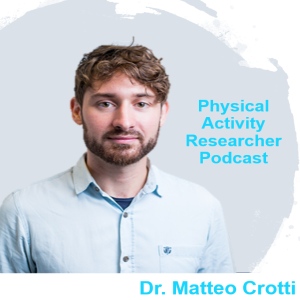
Tuesday Nov 16, 2021
Tuesday Nov 16, 2021
Dr. Matteo Crotti has got his PhD from the Liverpool John Moores University. He has been involved in various research projects concerning children’s physical activity, motor skills and health. Furthermore, he conducted a study concerning the relationship between play behaviours and motor skills in preschool children.
His early career researcher was in the field of Sports Sciences and his key research focus on physical activity promotion, physical activity assessment, physical education and coaching.
-----------------------------------------
This podcast episode is sponsored by Fibion Inc. | The New Gold Standard for Sedentary Behaviour and Physical Activity Monitoring
Learn more about Fibion: fibion.com/research
---
Collect, store and manage SB and PA data easily and remotely -
Discover new Fibion SENS Motion: https://sens.fibion.com/
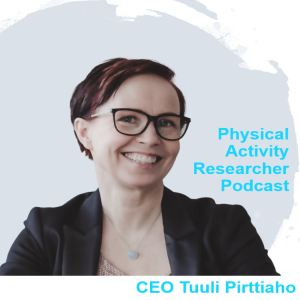
Sunday Nov 14, 2021
Sunday Nov 14, 2021
As a coach Pirttiaho supporting people’s self-intelligence, empowerment, mental fitness and physical recovery and potential, leadership and communication abilities and meaningful being - as a person, entrepreneur or leader.
Pirttiaho is a development and business oriented CPCC, PCC coach with 30 years experience in business and management as well as communication, HR development, service design and coaching. More about my services at www.thewind.fi / www.clues.fi / @thewindconsulting / @thewindcoaching / @cluescoaching
-----------------------------------------
This podcast episode is sponsored by Fibion Inc. | The New Gold Standard for Sedentary Behaviour and Physical Activity Monitoring
Learn more about Fibion: fibion.com/research
---
Collect, store and manage SB and PA data easily and remotely -
Discover new Fibion SENS Motion: https://sens.fibion.com/
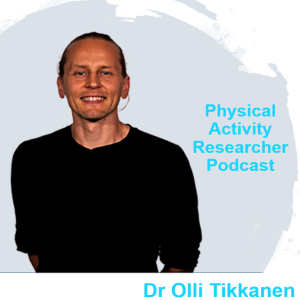
Saturday Nov 13, 2021
Saturday Nov 13, 2021
In this bonus episode we are covering new possibilities in research designs that are now possible with advances in sedentary behaviour and physical activity measurement technology. With the new IoT – Internet of Things devices – longitudinal data collection becomes considerably easier. More accurate data makes studies better in many ways and enables investigation of new things possible. These all can provide an edge when applying for competitive research grants.
-----------------------------------------
This podcast episode is sponsored by Fibion Inc. | The New Gold Standard for Sedentary Behaviour and Physical Activity Monitoring
Learn more about Fibion: fibion.com/research
---
Collect, store and manage SB and PA data easily and remotely -
Discover new Fibion SENS Motion: https://sens.fibion.com/

Friday Nov 12, 2021
Friday Nov 12, 2021
Today’s episode explores purpose in life and how it can relate to physical activity and work-life. We ask: How are meaning and purpose different? How is purpose in life connected to well-being? And how does socio-economic status influence who has access to meaningful experiences in work-life, and why is it perhaps related to meaningful leisure?
Dr Ayse Yemiscigil is a Postdoctoral Research Fellow at the Human Flourishing Program at Harvard University. Her research has explored the relationship between work and well-being, sense of meaning and purpose in work and physical activity, and the impact of retirement on purpose in life. In the meaningful sport podcast, she also reflects on her own sporting life and how athletes might find more meaning from sport.
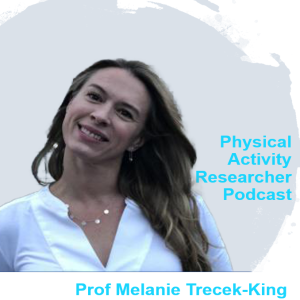
Tuesday Nov 09, 2021
Tuesday Nov 09, 2021
Melanie Trecek-King is an Associate Professor of Biology at Massasoit Community College in Massachusetts.
Her passion for science education led her to create Thinking Is Power to provide accessible and engaging critical thinking information to the general public.
In addition to her work in the classroom, Prof. Trecek-King is the Founder and Chair of Massasoit’s Sustainable Landscaping Committee, which uses environmentally responsible landscaping practices to conserve natural resources, reduce and prevent pollution, benefit wildlife, and enhance ecosystem functioning.
Trecek-King has a Bachelor of Science in Biology and Chemistry and a Master of Arts in Ecology from the University of Nebraska at Omaha, where she studied prairie ecology, succession, the role of fire in ecosystems, and habitat restoration.
-----------------------------------------
This podcast episode is sponsored by Fibion Inc. | The New Gold Standard for Sedentary Behaviour and Physical Activity Monitoring
Learn more about Fibion: fibion.com/research
---
Collect, store and manage SB and PA data easily and remotely -
Discover new Fibion SENS Motion: https://sens.fibion.com/
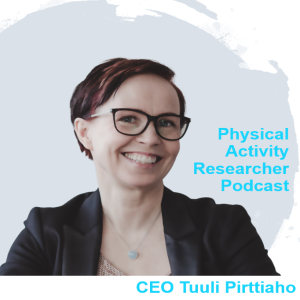
Sunday Nov 07, 2021
Sunday Nov 07, 2021
As a coach Pirttiaho supporting people’s self-intelligence, empowerment, mental fitness and physical recovery and potential, leadership and communication abilities and meaningful being - as a person, entrepreneur or leader.
Pirttiaho is a development and business oriented CPCC, PCC coach with 30 years experience in business and management as well as communication, HR development, service design and coaching. More about my services at www.thewind.fi / www.clues.fi / @thewindconsulting / @thewindcoaching / @cluescoaching
-----------------------------------------
This podcast episode is sponsored by Fibion Inc. | The New Gold Standard for Sedentary Behaviour and Physical Activity Monitoring
Learn more about Fibion: fibion.com/research
---
Collect, store and manage SB and PA data easily and remotely -
Discover new Fibion SENS Motion: https://sens.fibion.com/
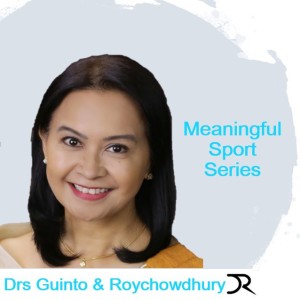
Friday Nov 05, 2021
Friday Nov 05, 2021
This is the second part of our conversation on the use of mindfulness in sport psychology, and what has been gained and lost when mindfulness migrated to the west. Mindfulness has become a panacea for well-being and performance in sport psychology, and many studies have documented its benefits for athletes. What is the problem, then?
In the conversation with Dr Maria Luisa Guinto, an Associate Professor at the University of the Philippines Diliman, and Dr Dev Roychowdhury, a researcher and practitioner based in Melbourne, Australia, we explore the migration of mindfulness and how it has been appropriated to Western audiences. We discuss the practical sport psychology work, the importance of intercultural dialogues on the meaning and practice of mindfulness, and how researchers might want to consider the critiques of mindfulness in their work.
The conversation draws on our co-authored article that focuses on the transnational migration of mindfulness in sport psychology. Further resources to explore the topic can also be found in Dev Roychowdhury's blog.
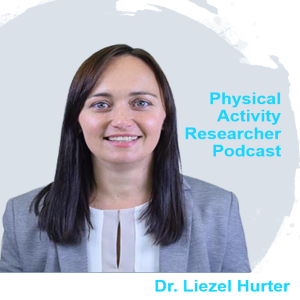
Tuesday Nov 02, 2021
Tuesday Nov 02, 2021
Liezel Hurter currently works at the School of Sport and Exercise Sciences, Liverpool John Moores University. Liezel does research in children's sedentary behaviour measurement and mental health and wellbeing
-----------------------------------------
This podcast episode is sponsored by Fibion Inc. | The New Gold Standard for Sedentary Behaviour and Physical Activity Monitoring
Learn more about Fibion: fibion.com/research
---
Collect, store and manage SB and PA data easily and remotely -
Discover new Fibion SENS Motion: https://sens.fibion.com/
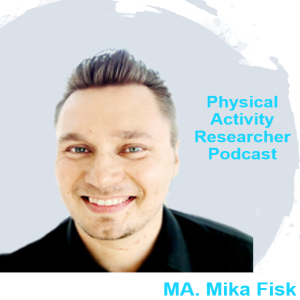
Sunday Oct 31, 2021
Sunday Oct 31, 2021
Mika is a business coach and a sales and marketing professional. He is helping companies to grow and reach their full potential. He has previously said that he is on a mission to make life feel better for everybody.
We are talking about sales and marketing in the health and fitness business.
---
This podcast episode is sponsored by Fibion Inc. | The New Gold Standard for Sedentary Behaviour and Physical Activity Monitoring
Learn more about Fibion: fibion.com/research
---
Collect, store and manage SB and PA data easily and remotely -
Discover new Fibion SENS Motion: https://sens.fibion.com/

Friday Oct 29, 2021
Friday Oct 29, 2021
Mindfulness has become a panacea for well-being and performance and is widely used in workplaces, schools... and sports. Many sport psychology studies have documented its benefits for athletes and it has become one of the main topics of sport psychology conferences.
Despite all these benefits, many scholars and writers have expressed their reservations about how mindfulness is taken up and used in Western countries. Two scholars who have long hed these reservations are Dr Maria Luisa Guinto, an Associate Professor at the University of the Philippines Diliman, and Dr Dev Roychowdhury, a researcher and practitioner based in Melbourne, Australia. I had the opportunity to get to know them a couple of years ago and work together on an article that focuses on the transnational migration of mindfulness and what was gained and what was lost when mindfulness became mainstream in sport psychology. In today's episode, we will explore some of the arguments and share some stories behind the research.
Further resources to explore the topic can be found in Dev Roychowdhury's blog.
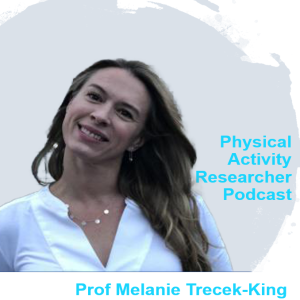
Tuesday Oct 26, 2021
What‘s Wrong with How We Teach Science? Prof Melanie Trecek-King (Pt1)
Tuesday Oct 26, 2021
Tuesday Oct 26, 2021
Melanie Trecek-King is an Associate Professor of Biology at Massasoit Community College in Massachusetts.
Her passion for science education led her to create Thinking Is Power to provide accessible and engaging critical thinking information to the general public.
In addition to her work in the classroom, Prof. Trecek-King is the Founder and Chair of Massasoit’s Sustainable Landscaping Committee, which uses environmentally responsible landscaping practices to conserve natural resources, reduce and prevent pollution, benefit wildlife, and enhance ecosystem functioning.
Trecek-King has a Bachelor of Science in Biology and Chemistry and a Master of Arts in Ecology from the University of Nebraska at Omaha, where she studied prairie ecology, succession, the role of fire in ecosystems, and habitat restoration.
-----------------------------------------
This podcast episode is sponsored by Fibion Inc. | The New Gold Standard for Sedentary Behaviour and Physical Activity Monitoring
Learn more about Fibion: fibion.com/research
---
Collect, store and manage SB and PA data easily and remotely -
Discover new Fibion SENS Motion: https://sens.fibion.com/
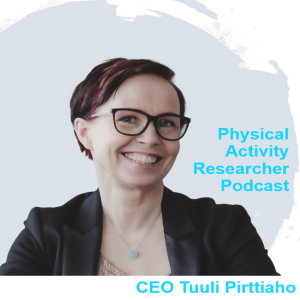
Sunday Oct 24, 2021
Sunday Oct 24, 2021
As a coach Pirttiaho supporting people’s self-intelligence, empowerment, mental fitness and physical recovery and potential, leadership and communication abilities and meaningful being - as a person, entrepreneur or leader.
Pirttiaho is a development and business oriented CPCC, PCC coach with 30 years experience in business and management as well as communication, HR development, service design and coaching. More about my services at www.thewind.fi / www.clues.fi / @thewindconsulting / @thewindcoaching / @cluescoaching
-----------------------------------------
This podcast episode is sponsored by Fibion Inc. | The New Gold Standard for Sedentary Behaviour and Physical Activity Monitoring
Learn more about Fibion: fibion.com/research
---
Collect, store and manage SB and PA data easily and remotely -
Discover new Fibion SENS Motion: https://sens.fibion.com/
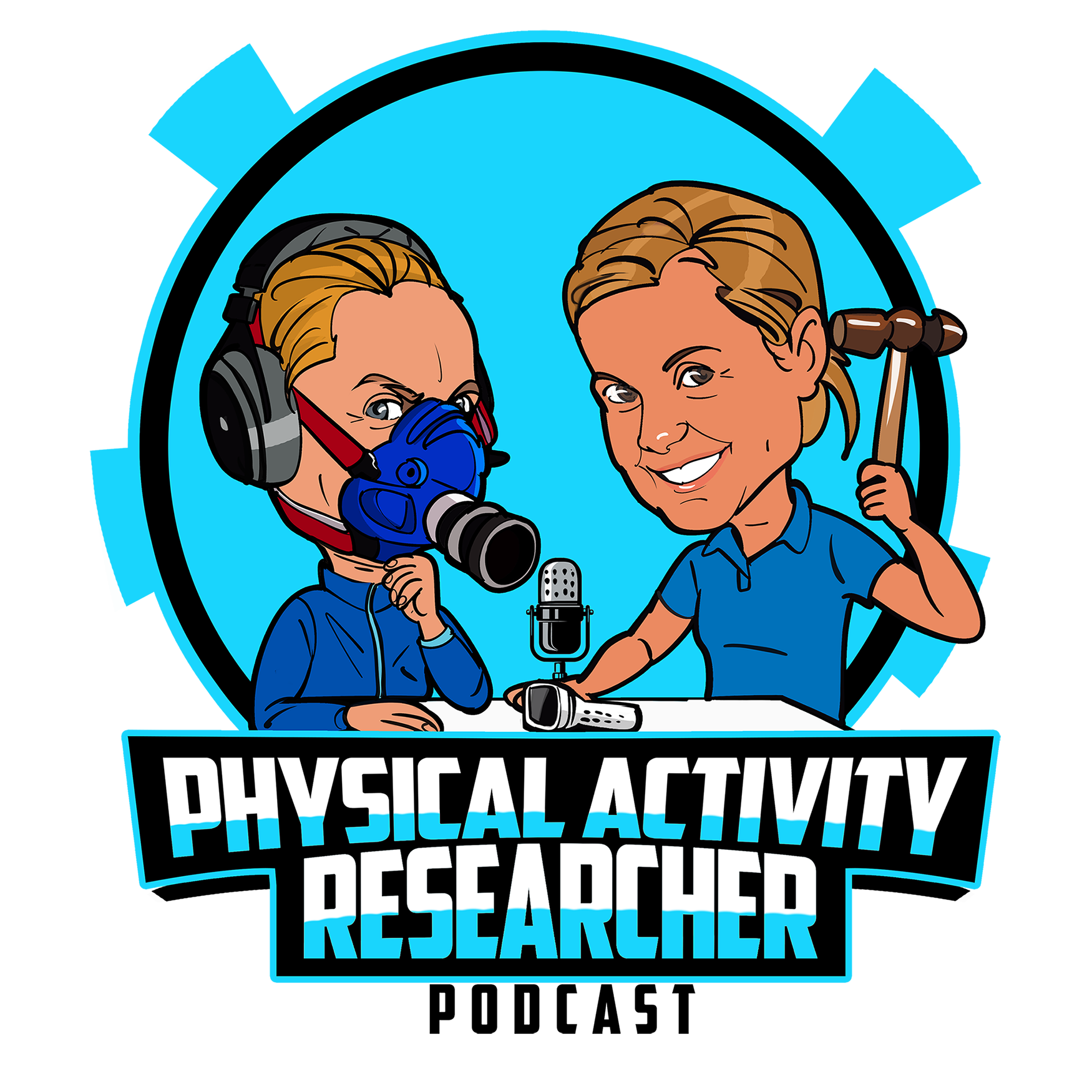
Hello and Welcome to Physical Activity Researcher Podcast!
Physical Activity Researcher Podcast is the source of the latest research findings on all things related to physical activity, exercise, and health. World-renowned scientists and experts as guests in an informal and relaxed interview style format. The podcast is for anyone who likes to learn scientific and evidence-based knowledge of physical activity, exercise, and health.
Physical Activity Researcher Series
The latest research findings in exercise physiology, physical education, coaching sciences, sport psychology, epidemiology, and public health.
Meaningful Sport Series
Meaningful Sport is dedicated to the exploration of meaning and meaningful experiences in sport and physical activity.
Practitioner’s Viewpoint Series
Practitioner’s Viewpoint Series has health and fitness professionals as guests. This series is for you if you are a Personal Trainer, Physiotherapist, Medical Doctor, Health Coach, or anyone working as a health and fitness professional.
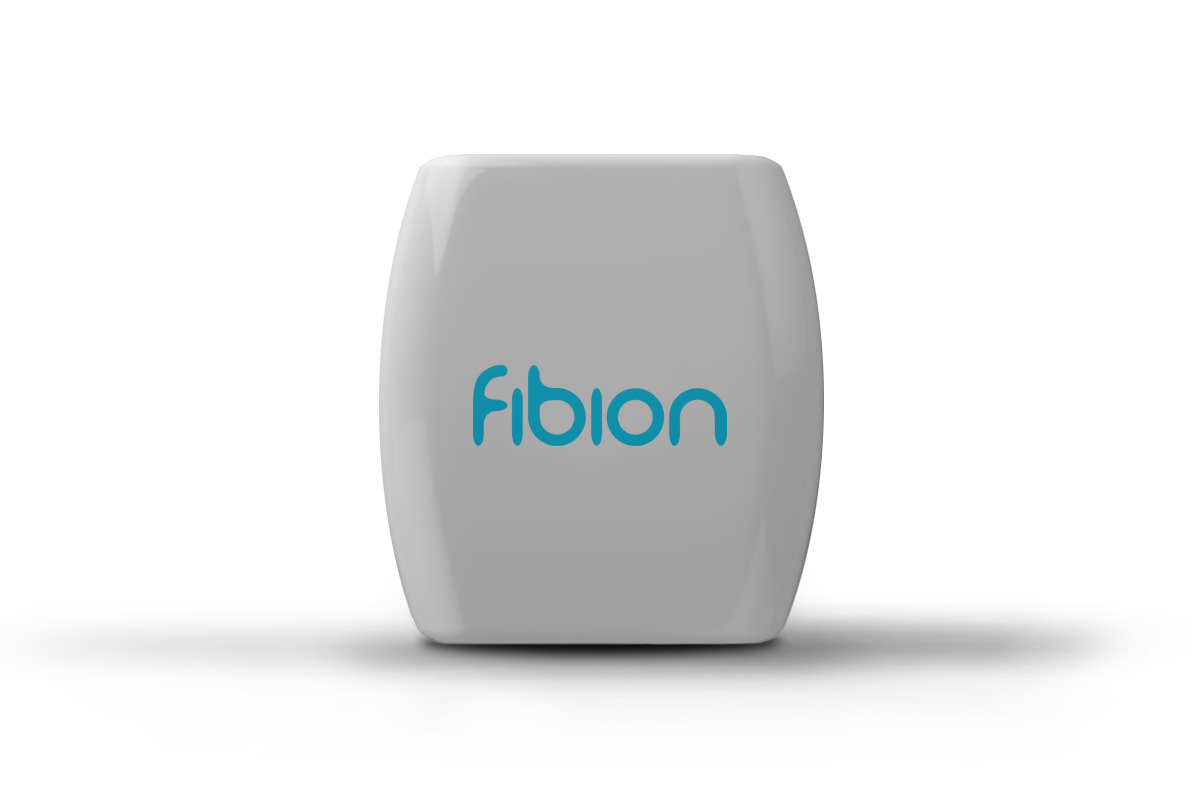
Podcast brought to you by
Fibion
Fibion is the new gold standard for sedentary behaviour and physical activity data collection for researchers. Cloud-based modern solutions make data collection easier than it has never been.
---
Fibion Pro is the first physical activity analysis product targeted from the beginning for health and fitness professionals. It is accurate and easy to use in connection with professional consultation meetings.
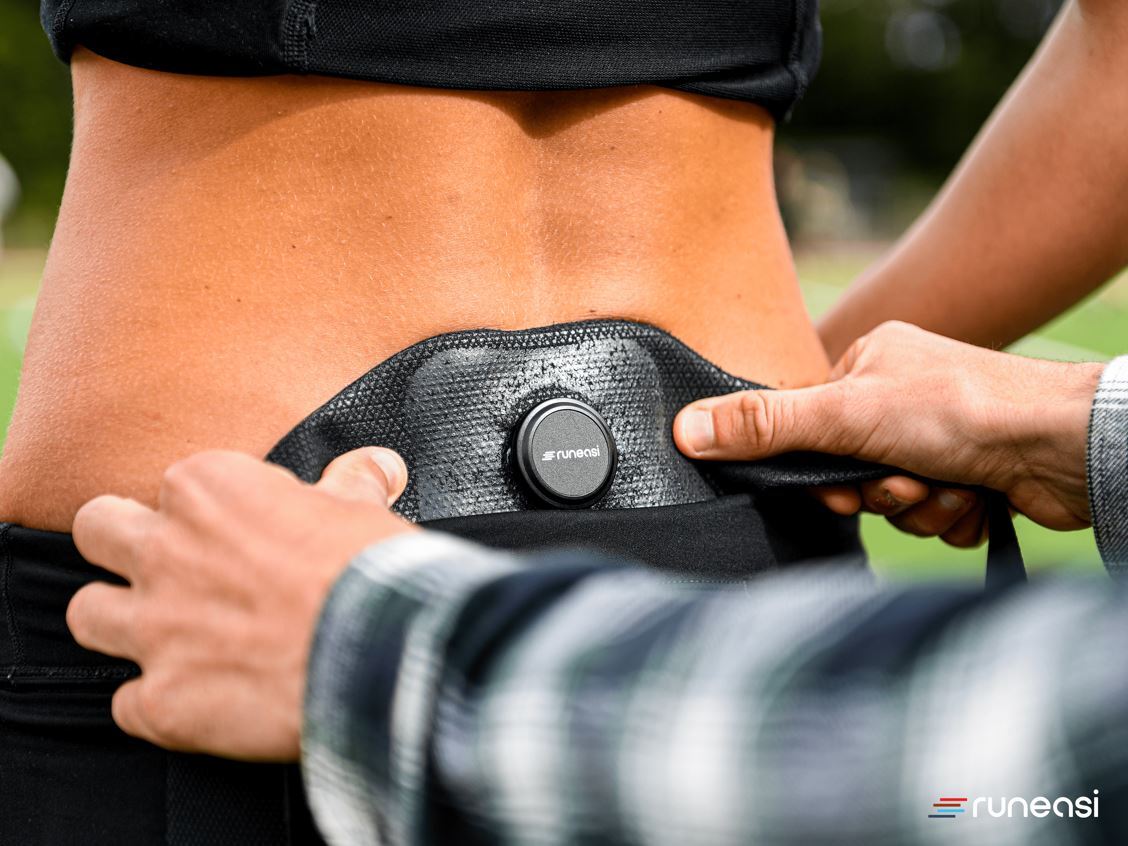
Practitioner's Viewpoint Series Brought to You by
Runeasi
Enabling value-based gait analysis for athletes with musculoskeletal conditions.
1. ASSESS
Runeasi’s real-time functionality gives you immediate and objective visual feedback about how well your patients are moving. Hence, you can immediately identify problem areas, weak links, or poor running technique.
2. ANALYZE
Test your verbal cues out on your patients as you guide them through rehabilitation and return to play/sport. Correct with confidence and surety in knowing what works for them.
3. ADDRESS
Help your patients emerge stronger than ever by giving personalized feedback on important technical parameters like impact asymmetry. Runeasi will help you improve your patients running technique and their ability to achieve your sporting goals!
Learn more: https://runeasi.ai
Book a free demo: https://calendly.com/runeasi/30min






